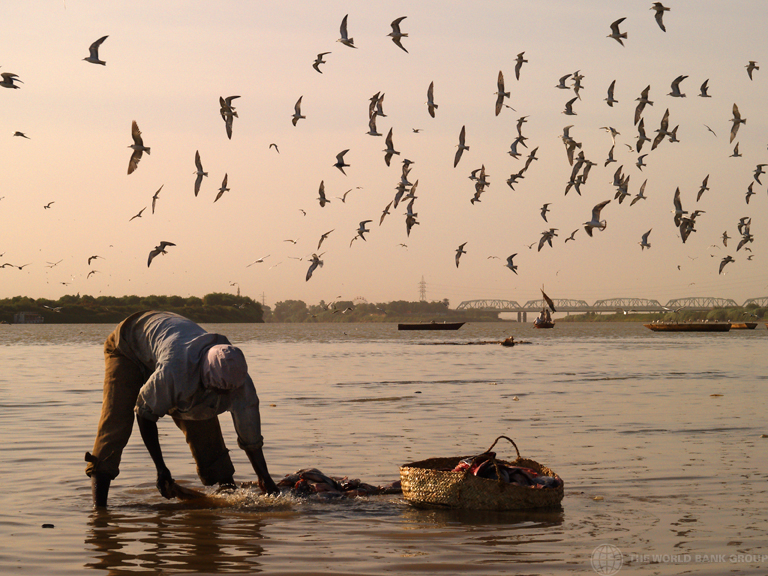Building on the success of the Regional Nile Basin HydroMet Project: NBI addresses water quality challenges in the Nile Basin
Posted in : Blog on 18 November 2022
The wellbeing of 272 million Nile Basin citizens relies heavily on the basin’s ecosystems, which provide numerous socio-economic benefits. Fish-based diets, flood control, hydroelectricity, production, water supply, irrigation agriculture and groundwater replenishment are just a few examples of the fundamental role and services that rivers, wetlands, and lakes – among other water-related ecosystems – provide.

Considering that a large portion of the Basin citizens directly depend on the services from rivers and lakes for their day-to-day subsistence and livelihood, environmental pollution which results in the loss of capacity of these ecosystems, directly threatens millions of livelihoods and inhibits economic growth. Within the Nile Basin, soil erosion, declining fisheries, and the discharge of untreated domestic and industrial effluents are among the common water quality problems.
In recognition of the transboundary nature of these water quality challenges, the CIWA-funded Nile Cooperation for Climate Resilience (NCCR) project – implemented by the Nile Basin Initiative (NBI), the Nile Basin Discourse (NBD) and the Lake Victoria Basin Commission (LVBC) – is aimed at supporting riparian countries in addressing water quality challenges through the improvement of national water quality monitoring and information systems using a coordinated approach.
Currently underway in Ethiopia, is an NBI/LVBC-led country needs assessment that builds on the success of the Regional Nile Basin Hydromet Services study, which was conducted in 2015 with support from the German Cooperation (BMZ) through GIZ.

The needs assessment will entail the following:
- Meeting Nile Technical Advisory Committee (Nile-TAC) members and the national water quality task team
- Conducting site visits to the water quality monitoring stations which are to be equipped with water quality sensors
- Updating the proposal on water quality, sediment field tool kits, and laboratory equipment that will be supplied
- Updating the needs of each laboratory that is selected to benefit from basic water quality equipment and laboratory accreditation
Of the 52 water quality monitoring stations that the Regional Nile Basin Hydromet Services study identified in the Basin, 39 of them will be supplied with water quality sensors for daily and sub-daily provision of water quality data. Water management agencies and water quality laboratories in each Member State will be supplied with water quality equipment, sediment, and water quality field kits.


